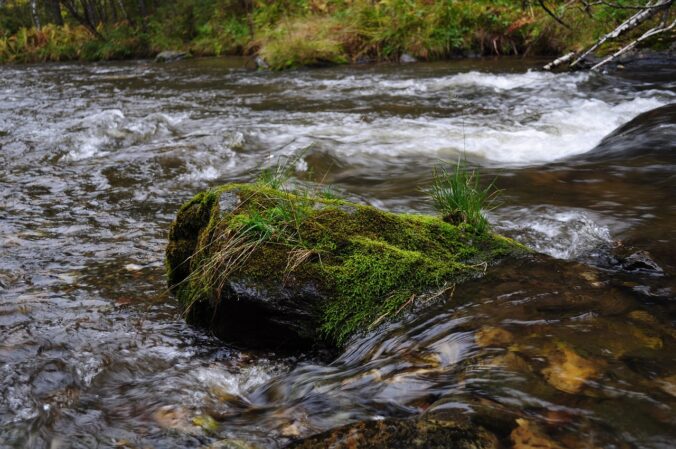When I find myself wanting to encounter God in a more direct way, I head outside. God is always there, waiting for me to find a place to sit and settle myself – and to let go of myself – so that He can fill up my ears with the sweet songs of the birds and the wisdom of the trees.
It is when I step away from myself and into nature that I am most able to observe His ways.
Mary Oliver, an American poet who won the National Book Award and the Pulitzer Prize, wrote tirelessly about the wonders of nature. Although she did not appear to prescribe to any particular religion, her writing became more and more spiritual as the years passed. She died in 2019, at the age of 83.
I cherish her poetry because over and again, she reminds her readers that the answers we seek are right before us, within our natural world. We just need to step outside and slow down – way down – and open our hearts to what God is trying to show us.
“At The River Clarion,” from Evidence, Poems by Mary Oliver1
1. I don’t know who God is exactly. But I’ll tell you this. I was sitting in the river named Clarion, on a water splashed stone and all afternoon I listened to the voices of the river talking. Whenever the water struck the stone it had something to say, and the water itself, and even the mosses trailing under the water.
And slowly, very slowly, it became clear to me what they were saying. Said the river: I am part of the holiness. And I too, said the stone. And I too, whispered the moss beneath the water.
I’d been to the river before, a few times. Don’t blame the river that nothing happened quickly. You don’t hear such voices in an hour or a day. You don’t hear them at all if selfhood has stuffed your ears. And it’s difficult to hear anything anyway, through all the traffic, and ambition.
2. If God exists he isn’t just butter and good luck. He’s also the tick that killed my wonderful dog Luke. Said the river: imagine everything you can imagine, then keep on going.
Imagine how the lily (who may also be a part of God) would sing to you if she could sing, if you would pause to hear it. And how are you so certain anyway that it doesn’t sing?
If God exists, he isn’t just churches and mathematics. He’s the forest. He’s the desert. He’s the ice caps, that are dying. He’s the ghetto and the Museum of Fine Arts.
He’s van Gogh and Allen Ginsberg and Robert Motherwell. He’s the many desperate hands, cleaning and preparing their weapons. He’s every one of us, potentially. The leaf of grass, the genius, the politician, the poet. And if this is true, isn’t it something very important?
Yes, it could be that I am a tiny piece of God, and each of you too, or at least of his intention and his hope. Which is a delight beyond measure. I don’t know how you get to suspect such an idea. I only know that the river kept singing. It wasn’t a persuasion, it was all the river’s own constant joy which was better by far than a lecture, which was comfortable, exciting, unforgettable.
3. Of course for each of us, there is the daily life. Let us live it, gesture by gesture. When we cut the ripe melon, should we not give it thanks? And should we not thank the knife also? We do not live in a simple world.
4. There was someone I loved who grew old and ill. One by one I watched the fires go out. There was nothing I could do except to remember that we receive then we give back.
5. My dog Luke lies in a grave in the forest, she is given back. But the river Clarion still flows from wherever it comes from to where it has been told to go. I pray for the desperate earth. I pray for the desperate world. I do the little each person can do, it isn’t much. Sometimes the river murmurs, sometimes it raves.
6. Along its shores were, may I say, very intense cardinal flowers. And trees, and birds that have wings to uphold them, for heaven’s sakes – the lucky ones: they have such deep natures, they are so happily obedient. While I sit here in a house filled with books, ideas, doubts, hesitations.
7. And still, pressed deep into my mind, the river keeps coming, touching me, passing by on its long journey, its pale, infallible voice singing.
1Mary Oliver, “At the River Clarion,” in Evidence: Poems by Mary Oliver (Massachusetts: Beacon Press, 2009), pp. 51-54.

Recent Comments